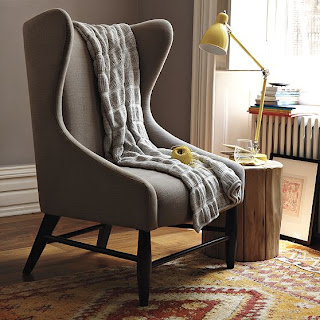When I recently tallied the total number of books I read in 2010, I was somewhat dismayed to discover that I read fewer books this year than I read last year (and last year wasn't exactly a record breaking year). How the heck did that happen? I seemed to have simply lost steam at one point. I also spent the better part of October getting spooked by a number of ghostly short stories, which I didn't factor into my total because I felt like it would be cheating (the stories came from disparate books). As a result, the number of books I consumed per month slowly tapered, at least in comparison to 2009. But it's really the quality of books that matters, not quantity, right? If reading fewer books means I can include gargantuan stories with 500+ pages, re-read certain favorites or delve into multiple short stories, then I suppose I'm ok with my number. Which is officially 21 books read in 2010. And so, here is how I concluded my reading this year:
The Group by Mary McCarthy. This story is about a group of seven Vassar graduates from the 1930's whose lives intertwine and diverge over the years following their graduation. It’s interesting to note what has changed between now and the time when the book was written (early 1960's) and what hasn't (surprisingly, not a lot has). Some of the book's themes are as relevant today as they were back then: the living life as a single girl in the city, the importance of female friendships, the need for autonomy, finding Mr. Right, martial hardships, talking with frankness about sex and birth control, etc. Each chapter sort of acts as a stand-alone story, though the subplots and characters overlap. I later learned that the book was first written as separate stories that were eventually made into the cohesive book we see today. The Group is at once a snapshot of the way things were, and a mirror reflecting the same problems and dreams and aspirations found today as yesterday.
Harry Potter and the Half-Blood Prince and Harry Potter and the Deathly Hallows by J.K. Rowling. Considering that the Deathly Hallows Part I movie came out this autumn, I had no other choice but to re-read the last two books in the Harry Potter series in preparation (what diehard Harry Potter fan wouldn't?). Even on my third reading, the books continue to delight and entertain. I still laughed and cried and shrieked with fear in the same exact places as before. Harry's story just gets in there and leaves you spellbound for days on end. Blame (or praise is more like it) Ms. Rowling. The woman's a literary genius, I tell you.
The Empowered Patient by Elizabeth Cohen. Written by a CNN medical correspondent, this book offers crucial information on how to get the best medical care in the United States. Medical errors are more common than we think and in order to combat a misdiagnosis, we need to stay alert by asking the right questions, choosing the right doctors, and trusting our instincts when it comes to making decisions about our health. A must-read for every American.
Entre Nous: A Woman’s Guide to Finding Her Inner French Girl by Debra Ollivier. Sometimes you need something a little fun and frothy to take the edge off of a serious read. And this book did just that. The author is an American woman married to a Frenchman, so the perspective is that of an outsider, but one who has been invited inside, so to speak. And while a lot of what the book espouses I either already knew or already knew better than to believe (generalizations and stereotypes abound), it still offers constructive ideas about how to live well, with grace and flair to boot.
The Mysteries of Udolpho by Ann Radcliffe. Three years had elapsed before I was finally able to complete this Mother of all Gothic novels. Why did it take me so long? The teeny tiny font and 600+ page count might have had something to with it. Also, the author's propensity for garrulous (albeit beautifully poetic) descriptions of atmosphere and mood and the heroine's melancholy tears that seemed to flow every other page (I suppose the book wouldn't be Gothic without any of the above) most certainly played a part in my sluggish dawdle to the book's conclusion. There were some genuinely chilling scenes in the book that also justified its Gothic reputation. It's been said that the author never travelled to the foreign climes of which she wrote, which makes her expressive, detailed prose all the more mind boggling. Never underestimate one's power of imagination! Especially when one is Anne Radcliffe. She has inspired legions of authors, most notably Jane Austen, who parodied Radcliffe in her very own Northanger Abbey.
As the final days of 2010 draw to a close, I just want to take this opportunity to wish all of you a very joyous new year. Thank you for reading and saying hi. You know who you are. Here's to a joyous and triumphant 2011! xx


















































